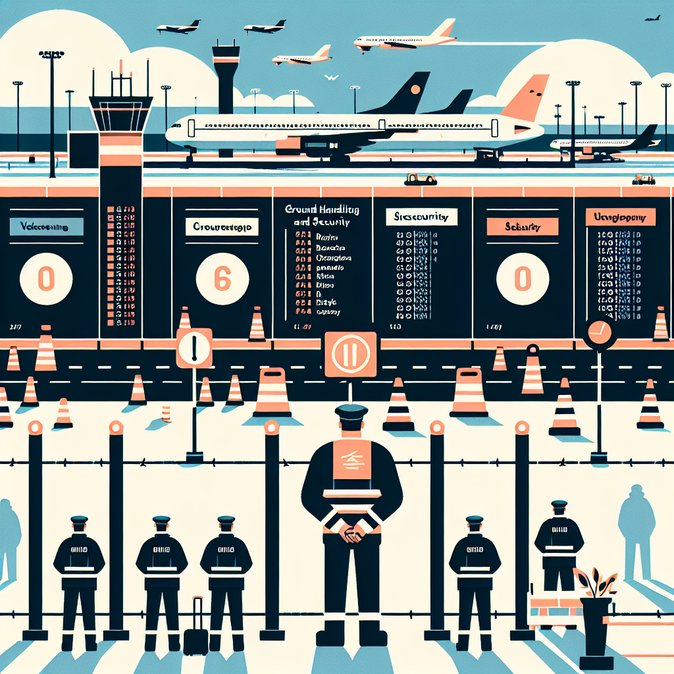
Ground-handling and security staff at Rome’s two commercial airports staged a four-hour strike from 10:00 to 14:00 on 12 November, protesting stalled talks over weekend pay and overtime rates. Airlines pre-emptively cancelled or retimed dozens of short-haul rotations, while long-haul carriers delayed departures until after 14:00 to keep within crew-duty limits.
ITA Airways reported “manageable” disruption after rerouting trans-Atlantic flights via Milan-Malpensa for re-fuel and crew changes, but low-cost operators Ryanair and Wizz Air issued mass re-booking vouchers. The walkout marked Italy’s 27th airport-sector strike of 2025, according to transport-authority data, underscoring a trend that is undermining schedule reliability for corporate travellers.
![Four-Hour Walkout at Rome’s Fiumicino and Ciampino Shows Rising Strike Frequency]()
Labour law in Italy requires only 48 hours’ notice for strikes shorter than 24 hours, limiting airlines’ contingency planning time. Mobility managers are advised to build half-day buffers into Italy itineraries, use flexible fares that allow same-day changes without penalty and pre-contract with local transport providers for last-mile transfers—particularly at Ciampino where rail links are limited.
With airport unions warning of further actions during the December holiday rush, companies should track the national strike calendar published by Italy’s Transport Authority and ensure expatriates understand reimbursement procedures for disrupted travel under EU Regulation 261/2004.
The episode also highlights growing interest among business-aviation operators in alternative hubs such as Perugia and Ancona, which were unaffected and reported a spike in short-notice slot requests.
ITA Airways reported “manageable” disruption after rerouting trans-Atlantic flights via Milan-Malpensa for re-fuel and crew changes, but low-cost operators Ryanair and Wizz Air issued mass re-booking vouchers. The walkout marked Italy’s 27th airport-sector strike of 2025, according to transport-authority data, underscoring a trend that is undermining schedule reliability for corporate travellers.

Labour law in Italy requires only 48 hours’ notice for strikes shorter than 24 hours, limiting airlines’ contingency planning time. Mobility managers are advised to build half-day buffers into Italy itineraries, use flexible fares that allow same-day changes without penalty and pre-contract with local transport providers for last-mile transfers—particularly at Ciampino where rail links are limited.
With airport unions warning of further actions during the December holiday rush, companies should track the national strike calendar published by Italy’s Transport Authority and ensure expatriates understand reimbursement procedures for disrupted travel under EU Regulation 261/2004.
The episode also highlights growing interest among business-aviation operators in alternative hubs such as Perugia and Ancona, which were unaffected and reported a spike in short-notice slot requests.


